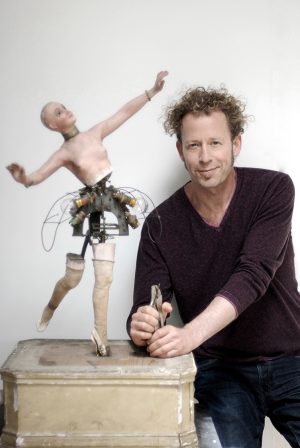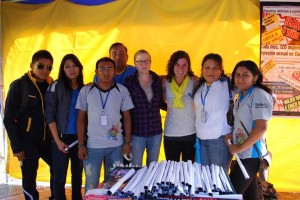Author:
Luis Flores
It’s a practical course,” explained Royce Chang about professor Tara Graham’s Field Reporting in the Digital Age: Using Media Tools for Social Justice. “I don’t think we get enough of that here at Berkeley.”
Professor Graham’s course trains students in Berkeley’s Global Poverty and Practice minor to use the Internet and social media as tools for global engagement. The course is an all-in-one tool kit for global awareness.
Last year, students received training in everything from film, photography and creative writing to web design. “The course was valuable because it trains you to look for things and to look for the best and most ethical way to go about acquiring material,” remarked Royce. Professor Graham is teaching the class again this semester.
Royce, a history major concentrating on ancient Greece and Rome, is currently working on developing media content for One World Futbol at Berkeley, an NGO that is working to spread global and community awareness among local K-8 students through sports. He continues to believe that no matter the initiative, the spread of awareness is a vital part of enacting positive change. To this goal, online media is a valuable tool.
Ryan Silsbee, another of professor Graham’s students last year, has since graduated and is completing a four-month organic agriculture apprenticeship with Real Time Farms in Hawaii. The importance of the media skills learned in professor Graham’s class are obvious by looking at his website: a clean site with vivid photographs, concise, creatively written updates and interactive maps and guides. His site allows readers to engage with his mission of promoting healthy and organic agriculture. “Spreading information and just getting people interested in where their food comes from and how it is grown is the first step,” Ryan said.
The theoretical courses in the GPP minor set Ryan on a path to change American agriculture, and Professor Graham’s course gave him the tools tostart making those changes. “I want people to step out of their busy lives, take a look at agriculture in the United States and decide for themselves if they think something should be changed,” he explained.
Many of professor Graham’s students, like Danika Kehlet, were first able
to put these skills to use during their summer practice initiatives. Armed with a small flipcam, Danika set out to chronicle her work promoting female development in Quito, Ecuador. Her lively blog illustrates her experience through the use of videos, photo collages and engaging blog entries.
This semester, Professor Graham is training a new group of GPP studentsin a similar course: Using Media Tools for Global Poverty Action. Practical courses like these are training the next generation of tech-savvy global citizens. Exposure to the development possibilities of social media is empowering and inspiring students.
“It is very inspiring to know that something I create, write, photograph, film, or document can change the way people view their world,” Ryan said. “If enough people see it, you can change society.”




